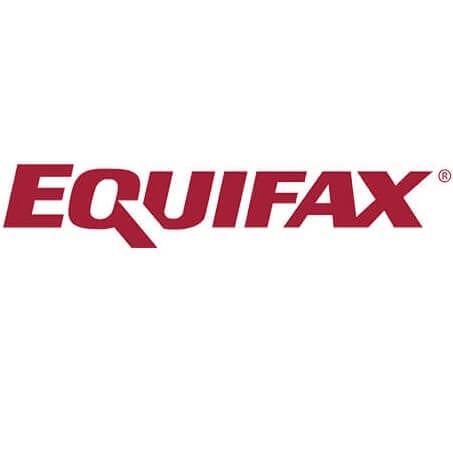Banking these days is something that increasingly leaves out the bank. “People don’t go to an ATM or into a bank a lot anymore, instead they mostly log in on our laptops or mobile devices,” says Octavia Howell, vice-president and chief information security officer for Equifax Canada.
Banking from your phone or computer is convenient, but it leaves a lot of the security that used to be undertaken by the bank up to the customer. Financial institutions have whole departments dedicated to protecting customers from theft and fraud, and strong controls to secure online banking. Still, bad personal habits can leave users vulnerable.
“Consumers have to be careful at all times and do their part to protect themselves and their families,” Howell says.
How cyber criminals try to access your bank account
Criminals may try to target individuals and withdraw money from consumers’ accounts, but there’s also a newer, faster-growing pattern of crime, which is trying to access the personal information of large numbers of people in order to commit fraud on a larger scale.
“A lot of bank fraud starts with someone trying to get you to share your information,” Howell says. “What we’re seeing in the industry right now is criminals gaining access to banking information directly from the account owners.”
Here’s how it works: The criminal organization obtains partial information on a group of people through an artificial intelligence assisted internet search. Scammers then call or otherwise contact their targets, often claiming to be representatives from a financial institution. The fraudsters might say there’s been a security issue and they need the last four digits of the customer’s account number or other information relating to a recent transaction in order to “validate” the account. Victims sometimes co-operate under the false impression that the caller is being helpful to them—at least it may seem so.
“No credible bank will ever call you and ask for banking information without you initiating the conversation,” Howell says.
If you receive a call of this sort, say you’ll call back, hang up, then call the organization directly using the customer service number published on its website or on the back of your card.
Best practices for protecting your bank account
Here are some other things you should do daily to help secure your bank account:
- Make sure your account PIN (personal identification number) is not something available online or that can be easily guessed, such as an anniversary or a child’s birthday.
- Use a strong password that is unique from your other accounts.
- Enable multi-factor authorization (which requires separately texted or emailed codes) or biometric logins that recognize your face or fingerprint. Biometrics is considered state-of-the-art in terms of digital security and can stop scams, says Howell “There’s only one you and scammers can’t easily fake that.”
- Avoid accessing your bank account over public Wi-Fi networks, such as those in coffee shops and airport departure lounges where criminals can “sniff” for users entering login credentials or credit card numbers. Use a private network such as your home internet or your wireless provider to access your banking information. If you must use a public network, download a VPN (virtual private network) and use that to access your account.
- Don’t share login credentials with anyone and make sure that your information is secure. Conceal credit or debit card codes you punch in at an ATM or a store checkout. “You never know who’s looking over your shoulder,” Howell says.
- Make sure you have a way to recover your account should it get compromised. Set up code words and security questions that will enable you to access your account if it gets locked by your financial institution. “It’s important to take the time to set the code words,” says Howell. “Carefully selected security questions can also play an important role in helping to protect your bank account.”
sponsored
Equifax Complete Protection
Equifax Complete Protection is a credit and cybersecurity protection service designed to help Canadians spot the signs of identity fraud faster.
- Provides daily credit monitoring and alerts
- Scans for your personal data on the dark web
- Social media monitoring by industry leader ZeroFox
Subscription price: $34.95 per month
Extra reassurance from Equifax Complete Protection
Most people know that they need to take extra care around financial transactions, says Howell. It’s the extra precautions they may not have considered that can leave them exposed to fraud and theft.
For a higher level of protection, consider Equifax CompleteTM Protection, a monthly subscription service that helps to keep your personal data and devices safe while alerting you to potential fraudulent credit accounts being opened in your name.
Features of Equifax Complete Protection include:
- Daily credit monitoring and alerts to notify you of key changes to your Equifax credit report, such as a new credit card or loan application
- WebScan, which monitors the dark web (hidden websites where criminals like to hang out and trade data) to see if your personal information appears there
- Social media monitoring provided by industry leader ZeroFox, to alert you to suspicious activity on your social media accounts
- Online data encryption by NordVPN and online password generation and storage by NordPass
- Parental controls from Bitdefender to restrict which websites and apps your kids can access
- Device protection from Bitdefender to help stop phishing attempts and protect devices from viruses and malware.
- Support from an Equifax identity restoration specialist, if your identity is stolen
- Identity theft insurance up to $1 million for out-of-pocket expenses (not available in Quebec)
Equifax Complete Protection costs $34.95 per month. To learn more, visit the Equifax website.
“What is identity theft, and how is it impacting Canadians?”
Read more about fraud and scams:

